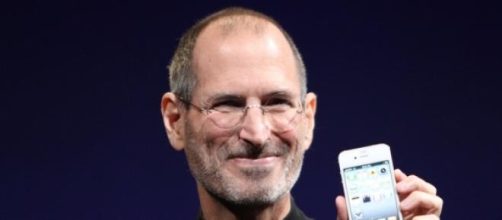There's a new documentary by controversial director Alex Gibney, who earlier this year released a tell-all film on Scientology, portraying Steve Jobs as a twisted and evil man. "Steve Jobs: Man in the Machine" is meant to shatter the myths surrounding the late Apple cofounder, even though most of the stories told where already known by the public.
It's a 127-minute film that covers all of Jobs' life. But for director Alex Gibney, the journey started in October 2011, when Steve Jobs died. A wave of commotion swept across social media and thousands of people flocked to Apple Stores, leaving candles and thank you notes to the man who created the Mac, the iPhone and the iPad.
Why where they shedding tears, though? Jobs was no worldwide famous artist, singer, writer, politician; he was someone who made a fortune out of selling stuff to people. And that puzzled Gibney.
So he decided to make a documentary showing all of the horrible aspects of Jobs' personality and actions. In the movie, we're treated to the devastating effect he had on his former sweetheart's life, Chrisann Brennan, whom he shunned when she got pregnant; he had to be forced by court to pay child support.
We hear from ex-employees whose life was turned upside down because of their work at Apple; from former friends who were betrayed by Jobs; and even from journalists who almost faced legal battle with the company over a lost iPhone 4.
Gibney's portrayal of one of the most complex and fascinating men in technology is very unforgiving and does not intend to be fair, or paint the whole picture.
It goes to the point where it criticises Steve Jobs for the way he handled his pancreatic cancer - one of the most deadly forms of the disease - because he attempted natural therapies before seeking traditional treatment. Gibney also judges the visionary leader for parking in handicapped spaces with his convertible Mercedes, a practice also already known.
Most of the reviews coming from South by Southwest (SXSW), where the documentary premiered, point to the excessive focus on negative aspects while withholding information. For instance, it shows the episode that opposed Jobs to Gizmodo over a lost iPhone 4, but fails to mention the letter written by then Gizmodo editor Brian Lam apologising over it, titled "Steve Jobs was always kind to me (or, regrets of an asshole)."
The movie also points out how Jobs cancelled all of Apple's philanthropic efforts when he came back, in 1997, but fails to acknowledge that the company joined Project (Red) and donated millions to the fight against AIDS in Africa (which it still does).
Current Apple employees reportedly left the theatre in SXSW while the documentary was still on.
"The Daily Beast" called it "character assassination", but The Guardian stated it was a "riveting and important corrective to the myths Jobs helped to propagate." The documentary will be distributed in theatres by Magnolia Pictures and will be broadcasted by CNN.

